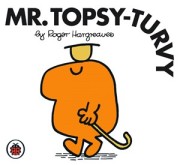Just under three weeks ago, I handed in my MA thesis. This means that, unless I really mucked up my thesis, I have completed the second of three qualifications which I need to work in the academy.
This makes it sound like I'm quite far along with my career development, when I am, in fact, the baby still grasping onto adult legs, trying to hold herself upright.
However, I took a baby-step (or maybe a bum-shuffle) along the right path recently by giving my first grown-up paper at my first grown-up conference: the
LAGB Annual Meeting at the University of Salford.
I found myself in this position almost wholly thanks to one of the most persuasive and enthusiastic academics I have ever met, namely my supervisor. He only has to mention something as a possibility for it to instantly sound like a good idea, and so I submitted an abstract based on a module assignment, on the basis that I knew the topic well (Indirect Object Clitic Doubling Constructions in Spanish and the Applicative Head) and that I was finding it quite interesting. Although the reviews of the abstract weren't 24-carat (they were more ambivalent than anything else), my abstract was accepted. I then got a mark of 70 on the module assignment itself and promptly forgot about the whole thing, as the MA dissertation took over my life.
On 31st August, in went the dissertation, and when the long-promised sense of relief failed to materialise, a gradual feeling of dread and fear for my conference paper a week later began to kick in.
I had presented the paper once before in mid-July to my department's Syntax and Semantics Research Group. It went fairly well, but didn't seem to garner much interest.
So, on arrival in Salford, I had the handout and notes from the previous talk, gently modified, and a massive ball of fear in my stomach. I would be presenting on the third day of the conference.
Enter George. Many a student has been sent away from his office or lectures with a better understanding of syntax and semantics after an explanation which invariably begins "It's really very simple..." He talked through the handout with me, picked up on a couple of daft errors, and generally did his usual thing of making everything seem like the simplest idea in the world.
I consequently committed the ultimate sin of writing slides the night before a presentation (the handout just had too many mistakes in it) and my session rolled around fast. Of course, we were in the biggest lecture theatre available, with sloping seating and a projection screen taller than I am. I was the second talk in my session, and was relieved to see a relatively small number of people in the auditorium.
And then they came, like moths to a theoretical syntax flame. I ended up with about 30 people who had come to hear ME speak, including
Mark Baker (Rutgers),
Lisa Cheng (Leiden) and
Norbert Corver (Utrecht). I spoke at 100 miles an hour, stumbled over my Spanish pronunciation and finished about 5 minutes ahead of time.
In question time though, someone must have been looking out for me, because I could actually answer, or at least discuss, some of the questions directed at me! For others, I used a tactic picked up earlier in the week - "I hadn't thought about it that way, but I'll go away and have a look." And indeed, fascinating new angles were suggested, such as
Ruth Kempson (KCL)'s suggestion to look at drawing parallels between the Spanish IODC and English constructions with expletives.
And I survived! George was pleased, as was I (once I'd got past just being pleased that it was over!) That night I could enjoy the conference dinner to the fullest...and judging by some of the faces at the next morning's 10am talk, so did everyone else.
In sum, Baby's First Conference was largely successful. At times, it was like being hit around the head with a syntax textbook, and I was stunned at the speed and insight with which the established academics synthesise information during talks and throw out new angles or different examples with the speed of a bullet train. However, I'm learning more and more about what I'm aiming for, how to talk to senior academics, how to approach things from new angles and, of course, how to prepare and deliver a conference paper.
If I could be so self-indulgent as to offer a bit of advice for other people who haven't given papers before - well, here it is:
- Take any opportunity to deliver the paper at least once before the conference itself, preferably within your own department. Friendly faces and prior practice make the real thing slicker, and less daunting.
- If possible, talk through it with a supervisor or colleague before presenting. They know the ropes and can help you avoid rookie mistakes.
- Take your time. Speaking more slowly doesn't actually drag the torture out, and will make your ideas come across more clearly.
- Try to enjoy it! You're fully engaging with something you're passionate about. Be open to ideas, but stand up for yourself too.
- ...and DON'T MAKE YOUR SLIDES THE NIGHT BEFORE! Typos on Spanish tenses WILL slip in...
Wish me luck!
P.S. Here's the slides, if you're interested:



















